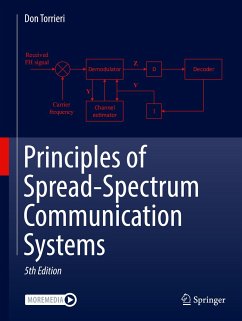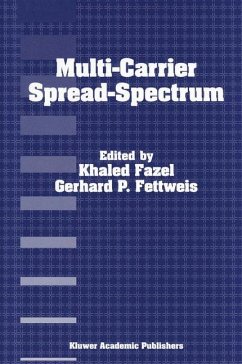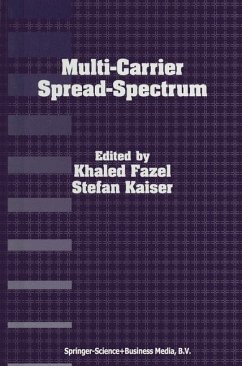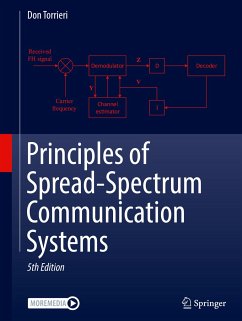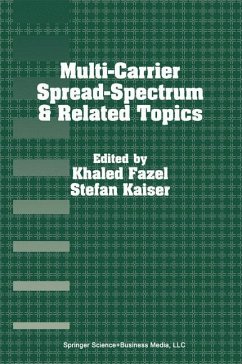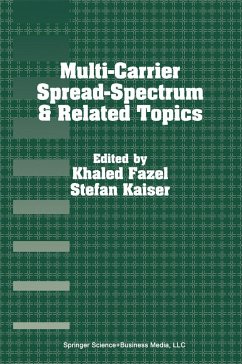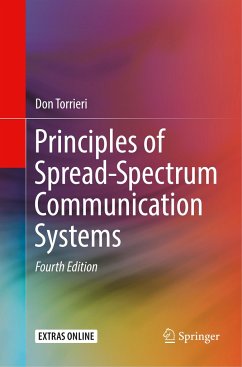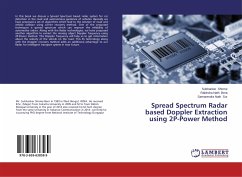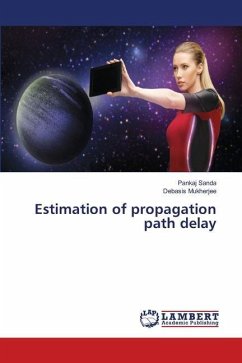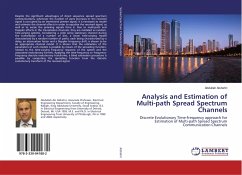
Analysis and Estimation of Multi-path Spread Spectrum Channels
Discrete Evolutionary Time-frequency approach for Estimation of Multi-path Spread Spectrum Communication Channels
Versandkostenfrei!
Versandfertig in 6-10 Tagen
22,99 €
inkl. MwSt.

PAYBACK Punkte
11 °P sammeln!
Despite the significant advantages of direct sequence spread spectrum communications, whenever the number of users increases or the received signal is corrupted by an intentional jammer signal, it is necessary to model and estimate the channel effects in order to equalize the received signal, as well as to excise the jamming signals from it. Due to multi-path and Doppler effects in the transmission channels, they are modeled as random, time-varying systems. Considering a wide sense stationary channel during the transmission of a number of bits, a linear time-varying model characterized by a ra...
Despite the significant advantages of direct sequence spread spectrum communications, whenever the number of users increases or the received signal is corrupted by an intentional jammer signal, it is necessary to model and estimate the channel effects in order to equalize the received signal, as well as to excise the jamming signals from it. Due to multi-path and Doppler effects in the transmission channels, they are modeled as random, time-varying systems. Considering a wide sense stationary channel during the transmission of a number of bits, a linear time-varying model characterized by a random number of paths, each being characterized by a delay, an attenuation factor and a Doppler frequency shift, is shown to be an appropriate channel model. It is shown that the estimation of the parameters of such models is possible by means of the spreading function, related to the time-varying frequency response of the system and the associated evolutionary kernels. Applying the time-frequency or frequency-frequency discrete evolutionary transforms, a blind estimation procedure is possible by computing the spreading function from the discrete evolutionary transform of the received signal.




